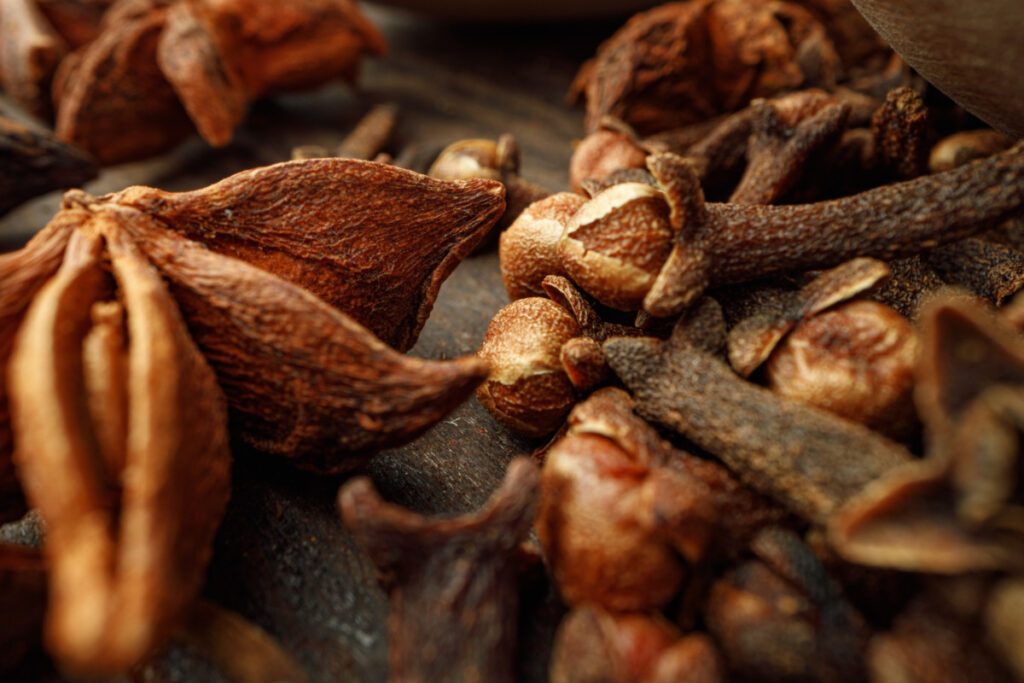Indonesia is renowned for its rich spice heritage, and among its most prized exports is the clove. This aromatic bud, native to the Maluku Islands, has captivated the world for centuries with its pungent flavor and versatility. Cloves hold a special place in Indonesian history, culture, and cuisine, and their cultivation remains an integral part of the nation’s economy.
A Culinary Gem
Cloves are the dried unopened flower buds of the clove tree, Syzygium aromaticum. These tiny buds pack a powerful punch, boasting a warm, woody aroma and a complex flavor profile that is both sweet and pungent. Cloves are a staple ingredient in Indonesian cuisine, lending their distinctive taste to a wide range of dishes, from savory stews and curries to sweet desserts and aromatic beverages.
In savory dishes, cloves lend a warm, earthy note to soups, stews, curries, and marinades. Their pungent flavor complements meats, particularly lamb and beef, while their aromatic qualities enhance vegetable dishes and rice pilafs. Cloves also find a home in Middle Eastern cuisine, adding spice to blends like garam masala and ras el hanout.Cloves also play a significant role in traditional Indonesian medicine, believed to possess various health benefits, including pain relief, digestive support, and immune system enhancement.
From Maluku to the World
The cultivation of cloves in Indonesia dates back centuries, with the Maluku Islands, particularly Ternate and Tidore, considered the birthplace of clove production. These islands were once fiercely contested by European powers due to the lucrative clove trade. Today, Indonesia remains the world’s largest producer of cloves, accounting for over 70% of global supply.
Clove cultivation in Indonesia is primarily centered on smallholder farmers, who manage an estimated 80% of the country’s clove production. These farmers meticulously care for their clove trees, ensuring the optimal growth and quality of the buds. The harvesting process is labor-intensive, involving the careful handpicking of the buds at the peak of their maturity.
Preserving a Legacy
The clove industry in Indonesia faces several challenges, including fluctuating market prices, competition from other clove-producing countries, and the need for sustainable farming practices. Despite these challenges, the Indonesian government and industry stakeholders are committed to preserving the nation’s clove heritage and ensuring the continued success of this vital crop.
Efforts are underway to modernize clove production techniques, improve post-harvest processing, and expand market access for Indonesian cloves. Additionally, initiatives are being implemented to promote sustainable clove farming practices that protect the environment and ensure the long-term viability of the industry.
Conclusion
Cloves are more than just a spice; they represent a symbol of Indonesia’s rich cultural heritage and economic strength. From their origins in the Maluku Islands to their widespread use in Indonesian cuisine and traditional medicine, cloves have left an indelible mark on the nation’s identity. As Indonesia strives to preserve its clove legacy, the world continues to savor the unique flavor and aroma of this remarkable spice, a testament to Indonesia’s enduring contribution to the culinary landscape.

